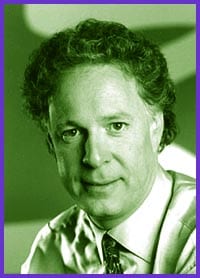Claudine Ouellet, in her jammies and on the phone first thing in the morning from home base in Quebec City, has only four years of activism left in her.
“You have just so much time in your life,” says Ouellet, the head of Coalition Gaie et lesbienne du Québec. “I’m 46. I promised myself I’d maybe retire at 50 – I have less than four years.”
The lawyer suspended her practice a year and a half ago so she could go full-time into gay rights – that’s about 60 hours a week, with no vacation for years.
Ouellet went to South Africa in September for her first International Lesbian And Gay Association get-together – and ended up an elected rep to the group’s board.
“Everything in my life was by accident,” she laughs. “There was a conspiracy to put me on the board. Who me? I didn’t even know all the nuts and bolts of the organization. They were looking for someone – can you imagine these quotas? – who wasn’t a man, wasn’t an anglophone.”
Now she’s crisscrossing the continent trying to get a vibrant North American ILGA chapter going.
People in the US “think they can do everything by themselves – they’re very busy watching their belly buttons,” Ouellet says.
And of course, there’s domestic politics. Ouellet says Quebec was recognized as a “state” at the ILGA convention.
“I don’t have a Canadian mandate. And I didn’t want a Canadian mandate. We have a mandate of doing things very differently – even our legal systems. It’s two different countries in a way of doing things.”
Ouellet was also the only delegate to ILGA from the top of the continent. “I don’t know why, I don’t have a clue. I hope Canadians don’t start thinking like Americans.”
But she’s in touch with activists across this country.
“In every province, you find some sort of fanatics. Not here! Not that kind. The Catholic Church is now bankrupt, they’re selling their buildings, begging for money. Less than 10 percent [of Catholics are] attending churches. Most of the time they are going socially.
“That’s why maybe it’s a little bit more easy… we don’t have those guys here. We’re never picketed for our gay Prides.”
Ouellet says she had an integral role in Bill 32, the Quebec bill which passed earlier this year and extends common-law relationship rights to homos. The activist says she spent two years getting feedback and helping draft it.
“We do things very slowly here, because we want to reach a large consensus, we don’t want [anybody to be] losers.”
The next issue is tackling Quebec’s Civil Code. Marriage was defined as a union between two consenting adults until 1994, when then-premier, Liberal Robert Bourassa, changed the rules. It’s now between a man and a woman.
Marriage “is a promise I made my partner after a few glasses of wine. If we gain the right to marry, it will be forever, because divorce is federal.”
After that, adoption. (Though Ouellet herself doesn’t want kids.)
“Technically adoption is legal, but we don’t have any kids to adopt here, we have to go internationally. But can’t because it’s under international laws,” says Ouellet.
“That’s the ILGA part.”
Ouellet still sees herself as a lawyer with a responsibility to help others (though there are limits, she adds. In 11 years, she never accepted a client accused of sexually abusing children.)
“Instead of a few hundred cases a year, I have just one, with 700,000 people in it.”

 Why you can trust Xtra
Why you can trust Xtra


